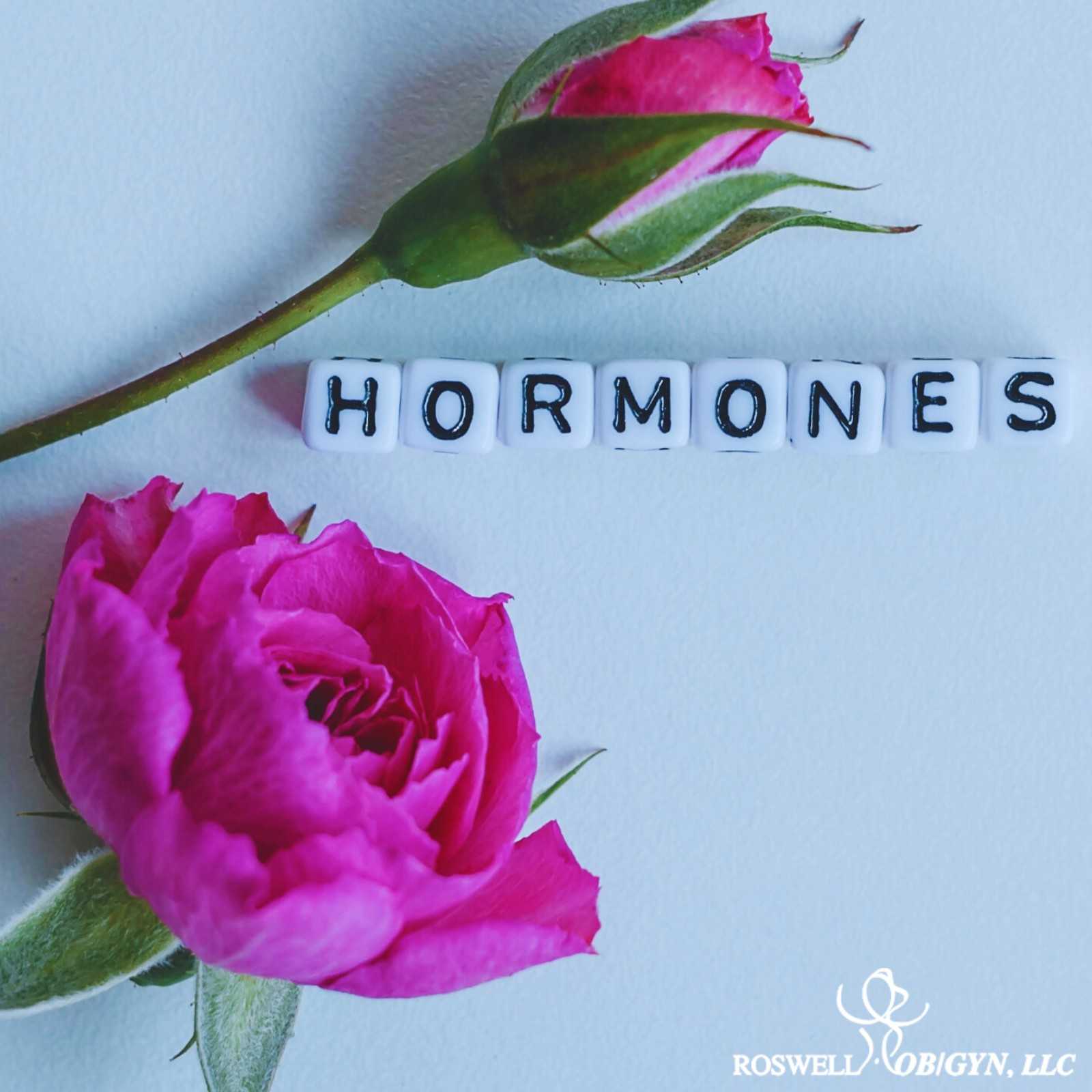
Hormones play a vital role in regulating many essential functions within a woman’s body. From controlling metabolism and reproductive health to influencing mood and energy, these chemical messengers maintain balance in complex bodily systems. However, when hormone levels fluctuate too far from normal, it can cause a hormonal imbalance with a wide range of effects.
Recognizing the signs of hormonal imbalance early is essential for maintaining overall health and well-being. Women at every life stage, from adolescence through menopause and beyond, may benefit from consulting an experienced OBGYN to evaluate symptoms that signal disruptions in hormone levels. In this article, you will learn how to identify key signs of hormonal imbalance, understand common causes, and know when to seek professional evaluation for personalized care.
What Is Hormonal Imbalance?
Hormones are chemical messengers produced by glands within the endocrine system. They regulate critical functions such as metabolism, reproduction, mood, and growth. A hormonal imbalance occurs when the body produces too much or too little of a hormone, disrupting these essential processes.
Hormonal imbalance can affect women at various life stages, including puberty, pregnancy, menopause, and beyond. Recognizing imbalance early allows for timely intervention, improving overall health and quality of life.
How Do I Tell If I Have a Hormone Imbalance?
Symptoms of hormonal imbalance can vary widely depending on which hormone is affected. Common signs include irregular menstrual cycles, weight fluctuations, mood disturbances, skin changes, and sleep disturbances. While these symptoms can overlap with other health conditions, recognizing them is the first step in identifying a potential hormonal imbalance.
A thorough and individualized assessment is critical for accurately diagnosing hormonal issues. Healthcare providers will evaluate symptoms and conduct diagnostic tests to determine the exact cause of the imbalance. Early detection is crucial for effective treatment and tailored care.
Common Causes of Hormonal Imbalance
Several factors contribute to hormonal imbalance in women:
- Life stage transitions: puberty, pregnancy, postpartum, menopause
- Medications: hormonal contraceptives, hormone replacement therapy
- Lifestyle factors: chronic stress, poor diet, excessive weight gain or loss
- Environmental exposure: endocrine-disrupting chemicals
Understanding these causes helps guide precise diagnosis and treatment plans.
Signs of Hormonal Imbalance
Women often experience a variety of physical symptoms that can indicate a hormonal imbalance. Early recognition of these signs is crucial for seeking timely clinical evaluation and appropriate management, which can potentially prevent complications.
Changes in Menstrual Cycle and Bleeding
Hormones such as estrogen and progesterone play a central role in regulating the menstrual cycle. When these hormone levels become imbalanced, it can cause significant disruptions to normal menstruation, including:
- Absent or missed periods (amenorrhea): This can occur when hormone levels drop below the threshold necessary to trigger menstruation. Causes may include excessive stress, significant weight changes, or underlying endocrine disorders.
- Heavy or prolonged bleeding (menorrhagia): Excess estrogen without adequate progesterone can lead to thickening of the uterine lining, resulting in heavy and prolonged menstrual bleeding that may cause anemia if left untreated.
- Irregular or unpredictable cycle lengths: Fluctuating hormone levels may cause cycles that vary significantly in length, making it challenging to predict periods. This irregularity is common during life stages such as puberty or perimenopause, but can also signal underlying pathology.
- Spotting between periods: Hormonal imbalance can cause breakthrough bleeding or spotting, often due to unstable hormone levels affecting the uterine lining’s integrity.
Persistent menstrual irregularities should prompt a comprehensive clinical assessment, including hormone level testing and pelvic imaging, to identify any structural or systemic causes.
Skin and Hair Symptoms
Hormonal fluctuations can significantly influence the skin’s oil production, texture, and hair growth cycles. Common skin and hair manifestations of hormonal imbalance include:
- Acne: Elevated levels of androgens increase oil production in the skin’s sebaceous glands, clogging pores and leading to acne outbreaks. This is particularly noticeable on the face, chest, and back. Hormonal acne often correlates with menstrual cycles or conditions.
- Excessive facial or body hair (hirsutism): High androgen levels can cause coarse, dark hair to appear in areas typically associated with male patterns, such as the chin, upper lip, chest, and back.
- Hair thinning or loss: Hormonal imbalances, especially involving thyroid dysfunction or elevated androgen levels, can disrupt the hair growth cycle. Women may notice increased shedding or thinning of the scalp.
- Skin pigmentation changes (melasma): Estrogen and progesterone changes can stimulate melanin production, leading to dark patches on the face, neck, and other sun-exposed areas. This is common during pregnancy or when using hormonal contraceptives.
For proper diagnosis, a clinical evaluation including hormone panels and thyroid tests is essential to determine the hormonal cause behind these symptoms.
Emotional and Cognitive Signs
Hormones play a critical role in regulating brain chemistry and overall mental health. When hormonal balance is disrupted, it can lead to a range of emotional and cognitive symptoms that negatively impact daily functioning and quality of life. Recognizing these symptoms is crucial for accurate diagnosis and effective treatment.
Mood Swings and Anxiety
Fluctuations in hormones, especially estrogen and progesterone, can alter neurotransmitter activity, affecting mood regulation and emotional stability. Women experiencing hormonal imbalances may notice:
- Mood instability: Sudden shifts in mood, irritability, and emotional sensitivity that may feel disproportionate to the situation.
- Increased anxiety or nervousness: Heightened feelings of anxiety, restlessness, or tension that interfere with daily activities and personal interactions.
- Depression: Persistent feelings of sadness, hopelessness, or loss of interest in activities that once brought joy. This may be linked to hormonal changes, especially during perimenopause or menopause, but it can also indicate underlying endocrine issues like thyroid dysfunction.
Hormonal imbalances are common during transitional life stages, but they may also point to medical conditions such as hypothyroidism or adrenal insufficiency. Recognizing these signs early allows for more focused treatment and improved emotional well-being.
Sleep Disturbances and Fatigue
Hormonal imbalances can disrupt normal sleep patterns, affecting both sleep quality and energy levels. Key sleep-related symptoms include:
- Difficulty falling or staying asleep: Fluctuating hormone levels, particularly those that affect melatonin production and circadian rhythms, can cause fragmented sleep or trouble falling asleep.
- Night sweats or hot flashes: Commonly associated with declining estrogen levels during menopause, these symptoms cause sudden, intense heat and sweating at night, interrupting sleep.
- Persistent daytime fatigue: Despite spending adequate time in bed, many women experience excessive daytime tiredness. This is often due to poor sleep quality or hormonal effects on energy metabolism.
These sleep disturbances often exacerbate mood symptoms, contributing to a cycle of fatigue and emotional distress. A comprehensive evaluation, including sleep assessments and hormone testing, is recommended for women experiencing these issues.
Hormonal Imbalance and Weight Changes
Weight fluctuations are a common manifestation of hormonal imbalance. These changes often reflect underlying disruptions in metabolic and endocrine functions. Understanding the hormonal influences on weight is essential for accurate diagnosis and effective management.
Unexplained Weight Gain or Loss
Hormones that regulate metabolism, such as thyroid hormones and insulin, play a critical role in maintaining a healthy body weight. When these hormones are imbalanced, they can cause:
- Unexplained weight gain: Despite following a balanced diet and regular exercise, some women may experience significant weight gain. This can result from slowed metabolism due to low thyroid hormone levels or insulin resistance, which affects how the body processes and stores energy.
- Sudden weight loss: On the other hand, conditions like hyperthyroidism may accelerate metabolism, leading to unintentional weight loss that is difficult to control. Other endocrine disorders can also cause rapid weight changes.
Proper monitoring and management of hormone levels are crucial steps toward restoring metabolic balance and achieving sustainable weight control.
ALSO READ: Perimenopause and Menopause: How an OBGYN Can Help You Manage the Transition
Effects of Thyroid Disorders and PCOS on Weight
- Thyroid disorders: Both hypothyroidism and hyperthyroidism affect metabolic rate and energy expenditure. Hypothyroidism often leads to decreased metabolism, resulting in weight gain, fatigue, and cold intolerance. Hyperthyroidism, by contrast, increases metabolism and may cause weight loss, nervousness, and heat intolerance.
- Polycystic ovary syndrome (PCOS): PCOS is a common endocrine disorder characterized by elevated androgen levels and insulin resistance. These hormonal changes contribute to difficulties in weight management, including increased fat accumulation and challenges in losing weight despite efforts to maintain a healthy lifestyle. PCOS is also associated with metabolic syndrome, increasing the risk of diabetes and cardiovascular disease.
Addressing these hormonal causes requires comprehensive testing, personalized treatment plans, and lifestyle modifications tailored to each patient’s needs.
How Is Hormonal Imbalance Treated?
Effective management of hormonal imbalance begins with an accurate diagnosis and a personalized treatment plan tailored to each patient’s unique condition and health goals. Roswell Ob/Gyn, LLC offers comprehensive evaluation and advanced treatment options to address the complex nature of hormonal disorders.
How Do You Fix a Hormone Imbalance?
Treatment depends on the specific cause and severity of the imbalance. Common medical interventions provided include:
- Hormone replacement therapy: Used to correct deficiencies in estrogen, progesterone, or thyroid hormones, restoring physiological balance and alleviating symptoms.
- Adjustment or switching of hormonal contraceptives: Modifying contraceptive methods can help regulate hormone levels and improve menstrual regularity.
- Management of underlying medical conditions: Conditions such as diabetes and thyroid disorders are carefully treated alongside hormonal therapies to optimize overall health.
ALSO READ: Letrozole Guideline
Regular follow-up appointments ensure the effectiveness of treatment, allowing for dose adjustments and monitoring for side effects or the emergence of new symptoms. Our multidisciplinary team collaborates closely with patients to develop comprehensive, individualized treatment strategies that address both medical and lifestyle factors.
If you are experiencing symptoms of hormonal imbalance, early evaluation is essential for effective management. Schedule an appointment with Roswell Ob/Gyn, LLC today!



